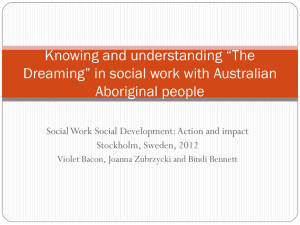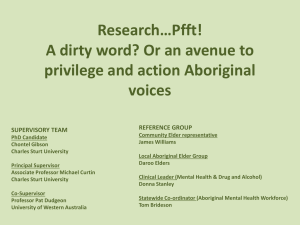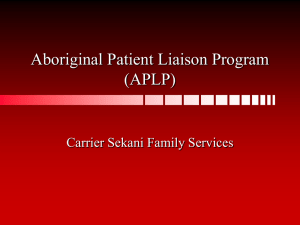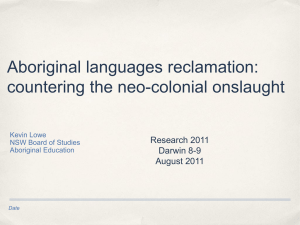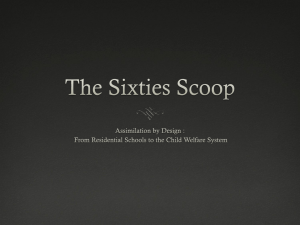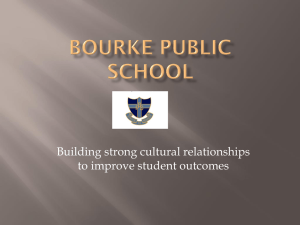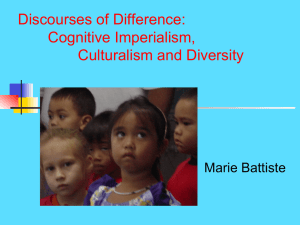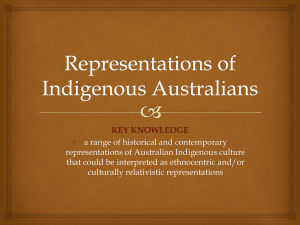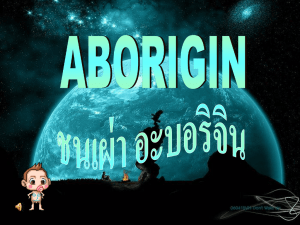presentation
advertisement
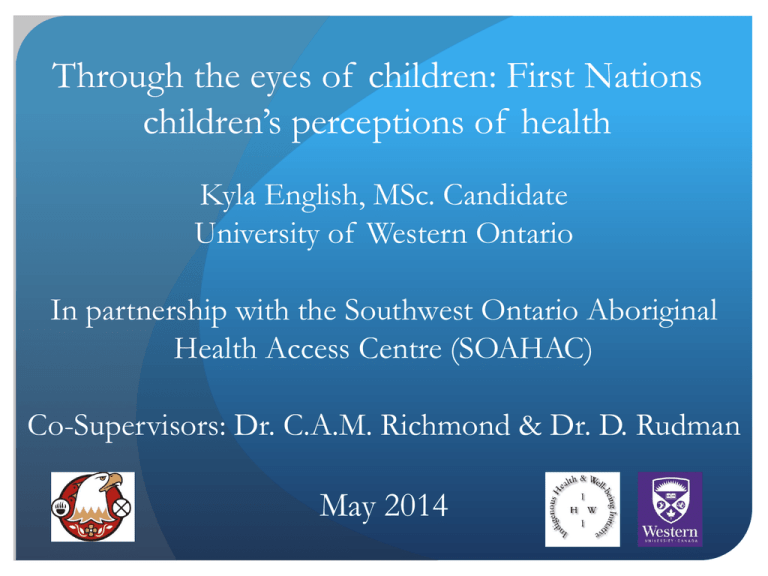
Through the eyes of children: First Nations children’s perceptions of health Kyla English, MSc. Candidate University of Western Ontario In partnership with the Southwest Ontario Aboriginal Health Access Centre (SOAHAC) Co-Supervisors: Dr. C.A.M. Richmond & Dr. D. Rudman May 2014 Background Information First Nations children face health disparities Cultural Identity “a complex of features that together shape how a person thinks about herself or himself as an Aboriginal person” (RCAP, 1996, p. 523) enhanced through traditional teachings and cultural activities Little exploration of First Nations children’s perceptions of health (Gracey & King, 2009; Greenwood & de Leeuw, 2012; Isaak & Marchessault, 2008; King, Smith, & Gracey, 2009; RCAP, 1996) Research Objectives 1) To understand how First Nations children think about their health, with an emphasis on the activities connected to health 2) To explore how these children connect health and culture Community-based Participatory Research: Working with the Community Picture on Left Top (left to right): Debbie Rudman, Kyla English, Melanie Knott, Nancy Noganosh, Hannah Tait-Neufeld, Summer Bressette, Carlene Mennen, Cindy Smithers Graeme Bottom (left to right): Chantelle Richmond, Jocelyn Shutt, Liz Akiwenzie Missing: Doug George, Brian Dokis Picture on Right (Left to right): Erik Mandawe, Kylie Bressette, Summer Bressette, Kyle Dolson, Kyla English, Keesis Nadjiwon, Cindy Smithers Graeme Missing: Marley Fisher Bimaadiziwin Learning Experience (BLE) • August 19 – 23, 2013 • 9:30 a.m. – 3:30 p.m. • Located at GLC • Free of charge • Lunch and snacks provided • Cultural activities • Research activities • 4 Research Assistants Study Participants 20 First Nations children 10-12 years old Oneida Nation of the Thames, Chippewas of the Thames First Nation, Kettle and Stony Point First Nation, Walpole Island First Nation All were participants in the BLE Research Activities Data Collection 1) Painting • Monday morning • “What does being healthy look like to you?” 2) Sharing Circles • Monday afternoon • 4 circles, 4-5 children per circle Data Analysis • Inductive thematic analysis Findings: Eating healthy foods Findings: Being active Findings: Cultural symbols Discussion Points Being Outside Outside viewed as healthy environment Children enjoyed outdoor activities Importance of Relationships Family, friends influenced perceptions of health Parents viewed as role models, important sources of health information Grandparents viewed as important sources of cultural knowledge Living Between Two Cultures Ideas of health largely centered around food and exercise Children struggled to verbalize connection between health and culture Learning Through Doing Indigenous Knowledge largely gained through experience Children demonstrated preference for hands-on learning (Richmond, 2014) Implications for Health Promotion Involve community members, especially grandparents and Elders, in design and delivery Bring children out on the land Provide opportunities for hands-on learning Incorporate Western and First Nations ways of knowing and ideas about health “...Recognizing multiple ways of knowing and being in the world is fundamental to effective research and effective health care practice with and for Aboriginal peoples” (Greenwood & de Leeuw, 2012, p. 7) Thank you. References 1. Gracey, M., & King, M. (2009). Indigenous health part 1: Determinants and disease patterns. The Lancet, 374, 65-75. 2. Greenwood, M.L., & de Leeuw, S.N. (2012). Social determinants of health and the future well-being of Aboriginal children in Canada. Paediatrics & Child Health, 17(7), 381-384. 3. Royal Commission on Aboriginal Peoples. (1996). Report of the Royal Commission on Aboriginal Peoples: Volume 4: Perspectives and realities. Ottawa, ON: Canada Communication Group – Publishing. 4. King, M., Smith, A., & Gracey, M. (2009). Indigenous health part 2: The underlying causes of the health gap. The Lancet, 374, 76-85. 5. Isaak, C.A., & Marchessault, G. (2008). Meaning of health: The perspectives of Aboriginal adults and youth in a Northern Manitoba First Nations community. Canadian Journal of Diabetes, 32(2), 114-122. 6. Richmond, C.A.M. (2014). Indigenous health (Unpublished). Western University, London ON.

